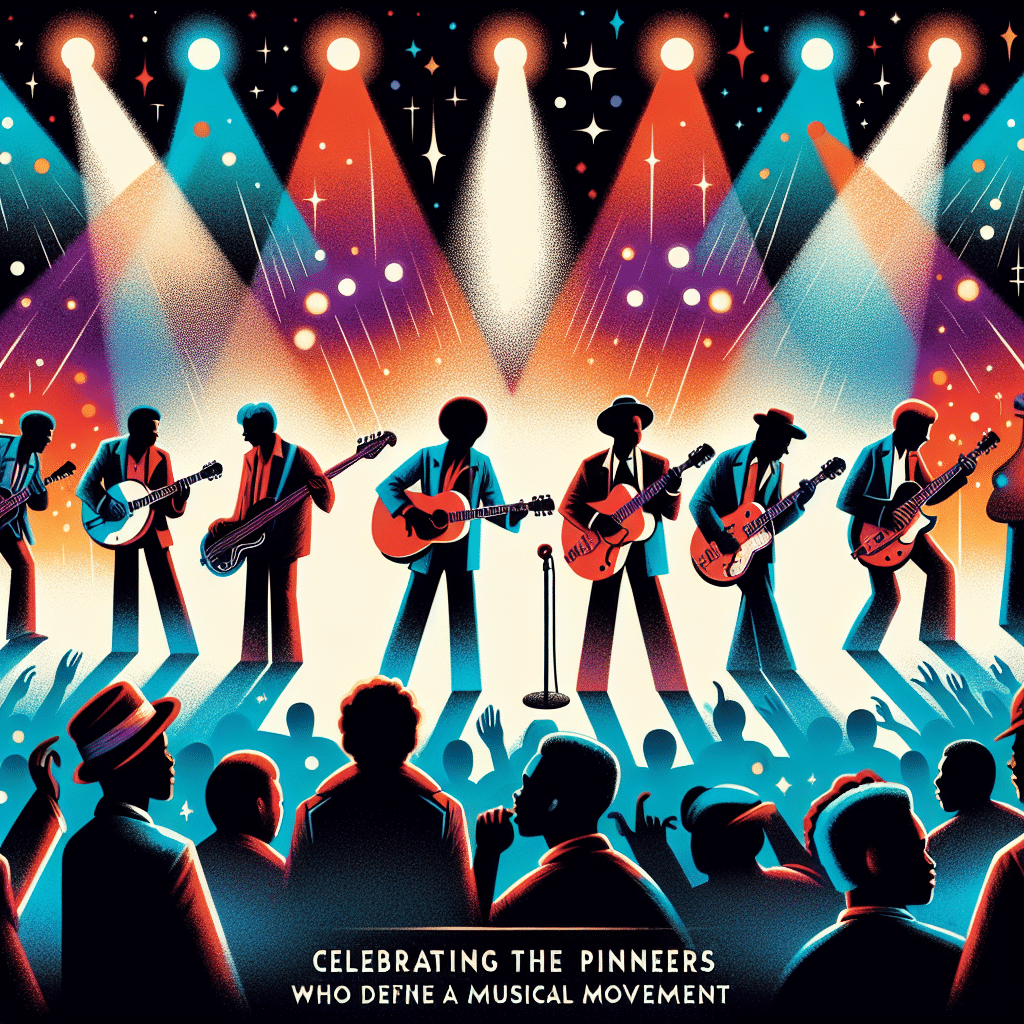Soul Legends: Celebrating the Pioneers Who Defined a Musical Movement

Soul music, a genre that emerged from a convergence of rhythm and blues, gospel, and jazz, represents not just a musical style, but an extensive cultural movement. Born in the 1950s and 1960s, soul music brought forth timeless melodies and powerful lyrics that spoke to social issues, love, and resilience. This article celebrates the pioneers of soul music who shaped not only the sound but also the spirit of a generation.
The Origins of Soul Music
Soul music developed from the rich tapestries of African American musical traditions. Its roots can be traced back to the gospel churches of the South, where African American singers often conveyed profound emotional experiences. Influenced by civil rights movements and cultural shifts, soul music encapsulated the struggles and triumphs of a community. The term "soul" itself was used to describe the emotional depth of music that resonated with personal and collective experiences.
Key Characteristics of Soul Music
Soul music is characterized by its expressive vocal style, rhythmic instrumentation, and incorporation of various musical elements. It often features:
- Passionate Vocals: Singers in the soul genre deliver emotion through their voices, employing techniques such as melisma and vocal improvisation.
- Groovy Bass Lines: The bass guitar plays a pivotal role in soul tracks, driving the rhythm and enhancing the groove.
- Brass Sections: Many soul songs feature horns that add a dynamic layer of sound, elevating the energy and feel of the music.
- Themes of Love and Struggle: Soul music's lyrics often reflect the realities of love, heartache, and social challenges, making the songs relatable and resonant.
Iconic Pioneers of Soul Music
Throughout the decades, numerous artists have left indelible marks on the soul music genre, each contributing to the tapestry of sound that defines it.
Ray Charles
Often referred to as the "Father of Soul," Ray Charles seamlessly blended gospel, jazz, and blues to create a distinctive sound. His hit song "What'd I Say" is a testament to his innovative use of rhythm and melody, transforming the landscape of American music.
See Also: From Aretha to Anderson: The Evolution of Soul's Finest Voices
From Aretha to Anderson: The Evolution of Soul's Finest VoicesAretha Franklin
Dubbed the "Queen of Soul," Aretha Franklin's powerful voice and ability to convey deep emotion set her apart. With classics like "Respect" and "(You Make Me Feel Like) A Natural Woman," she not only redefined soul music but also became an enduring symbol of female empowerment and social justice.
James Brown
Known as the "Godfather of Soul," James Brown's energetic performances and revolutionary sound introduced funk into the soul genre. His songs "I Got You (I Feel Good)" and "Papa's Got a Brand New Bag" showcased his rhythmic ingenuity, forever changing the fabric of American music.
Otis Redding
With his gruff yet heartfelt delivery, Otis Redding's contributions to soul include memorable tracks like "Sittin' On The Dock of the Bay." Redding's ability to convey vulnerability and pain resonated deeply with audiences, making him a lasting influence on soul and R&B.
Stevie Wonder
See Also: Rhythm and Resilience: The Societal Impact of Soul Music Through the Decades
Rhythm and Resilience: The Societal Impact of Soul Music Through the DecadesA prodigious talent, Stevie Wonder's music transcends genre boundaries. Songs like "Superstition" and "Isn't She Lovely" highlight his keyboard skills and complex songwriting. Wonder's work in the 1970s helped soul music evolve into a more mainstream and globally recognized phenomenon.
The Cultural Impact of Soul Music
Soul music has always been more than just entertainment. It played a crucial role in the cultural landscape, particularly during the civil rights movement. Artists used their platforms to advocate for change, raise awareness of social issues, and galvanize communities. Songs became anthems of hope and resilience, fostering a sense of identity among African Americans and their allies.
The Influence on Future Genres
The pioneering spirit of soul music has had a lasting influence on a broad array of music genres. Hip-hop, R&B, and even pop music have incorporated the elements that originated in soul. Modern artists like Beyoncé, Bruno Mars, and D'Angelo have paid homage to the legends of soul, blending classic sounds with contemporary styles.
The Legacy of Soul Music Today
Today, soul music continues to thrive. Festivals celebrating the genre attract fans from across the globe, and new artists are inspired by the pioneers who forged the path. Documentaries, tribute albums, and renewed interest in vinyl records have ensured that the soulful sounds of the past remain relevant.
See Also: Roots of Soul: Tracing the Evolution of a Genre Born from Struggle and Joy
Roots of Soul: Tracing the Evolution of a Genre Born from Struggle and JoyThe Importance of Soul Legends
Recognizing and honoring the pioneers of soul music is crucial as it underscores the importance of cultural heritage in shaping contemporary music. Soul legends endured struggles and broke barriers, paving the way for future generations of artists. Their contributions reflect not only musical genius but also the power of artistic expression in affecting social change.
Conclusion
Soul music is a profound narrative of human emotion, resilience, and identity, intertwined with the history of civil rights and cultural expression. Celebrating the pioneers of this genre is more than just an acknowledgment of their sound; it is a tribute to their influence on generations of artists and musicians. The legends of soul music have created a legacy that will continue to inspire and resonate for years to come, ensuring that the heart and spirit of soul never dims.
FAQs
1. What defines soul music?
Soul music is characterized by powerful vocals, emotional depth, rhythmic bass lines, and themes that often reflect love, struggle, and social issues.
See Also: Timeless Vibes: Celebrating the Soul Music Hits That Defined a Generation
Timeless Vibes: Celebrating the Soul Music Hits That Defined a Generation2. Who are some of the most influential soul artists?
Influential soul artists include Ray Charles, Aretha Franklin, James Brown, Otis Redding, and Stevie Wonder, among others.
3. How did soul music influence modern genres?
Soul music laid the groundwork for genres such as R&B, hip-hop, and pop, with contemporary artists often integrating soul elements into their work.
4. Why is soul music important in cultural history?
Soul music played a significant role during the civil rights movement, using music as a platform to advocate for change and express societal struggles.
See Also: Rhythms of Emotion: Discovering the Top Soul Artists You Need to Know
Rhythms of Emotion: Discovering the Top Soul Artists You Need to Know5. How can I explore more soul music?
You can explore soul music through listening to classic albums, attending soul festivals, and engaging with documentaries that celebrate the genre and its artists.
If you want to know other articles similar to Soul Legends: Celebrating the Pioneers Who Defined a Musical Movement you can visit the category Soul.
